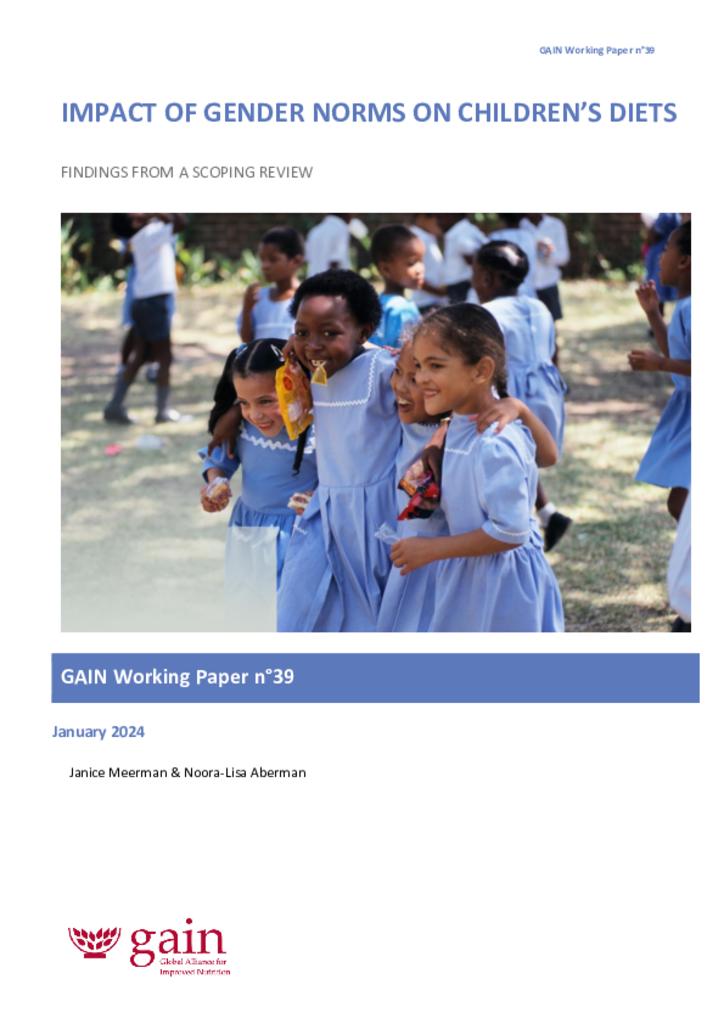Children’s nutrition is a gendered issue. Women are commonly viewed as primarily responsible for cooking household meals and are thus considered central to how and what children eat . Additionally, gender norms can influence how food is allocated within a family unit and the food preferences of girls and boys as they get older.
Lastly, men are commonly viewed as responsible for providing income for household food purchases and sometimes for procuring food itself. GAIN’s programmatic work aims to increase the consumption of nutritious, safe food for all people, especially the most vulnerable. Efforts to improve children’s diets in low- and middle-income countries (LMICs) include programming to make foods for children safer, more nutritious, and more affordable. Areas of action include behaviour change and demand creation activities aimed at improving child diets, supporting small and medium-sized enterprises that manufacture high-quality, healthy food items that are appropriate for children, and working with government and other partners towards a common agenda to improve children’s diets.
To better understand the primary pathways through which gender norms impact children’s diets, this scoping review examines recent literature on gender issues related to child feeding in LMICs. It seeks to identify trends that occur within specific populations and cross-culturally. The findings will support increased gender sensitivity across GAIN programmes.
